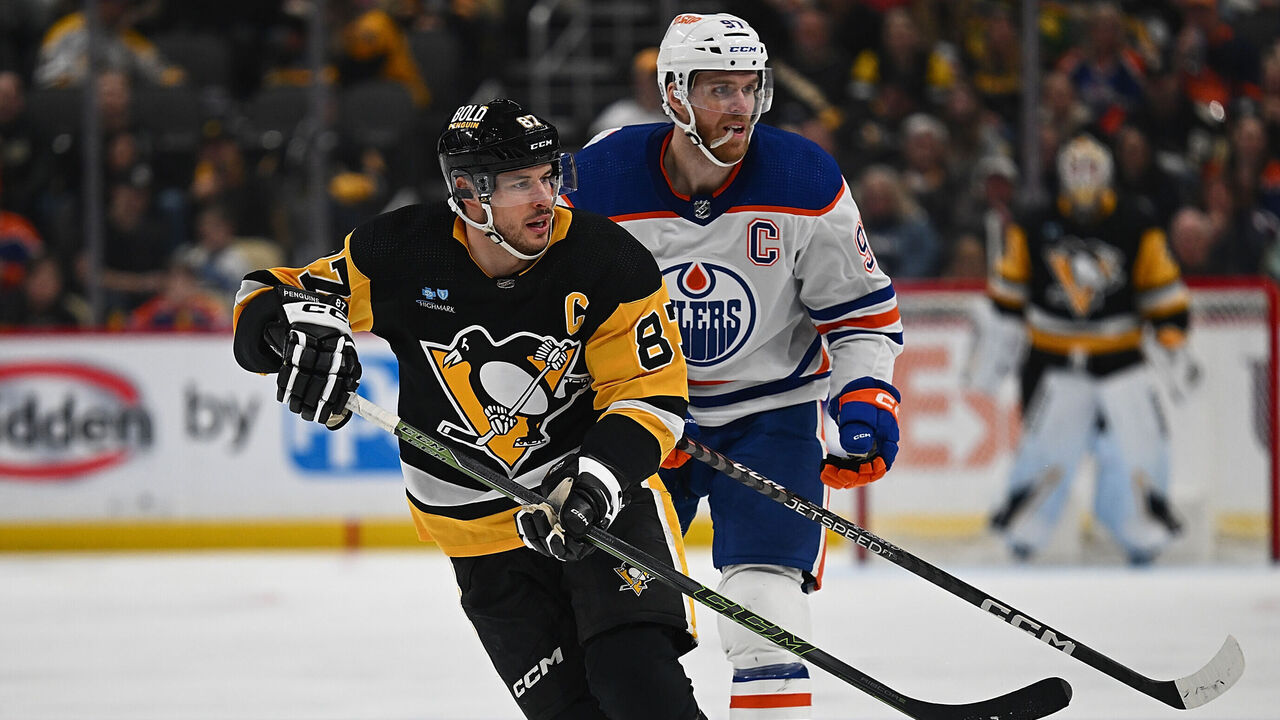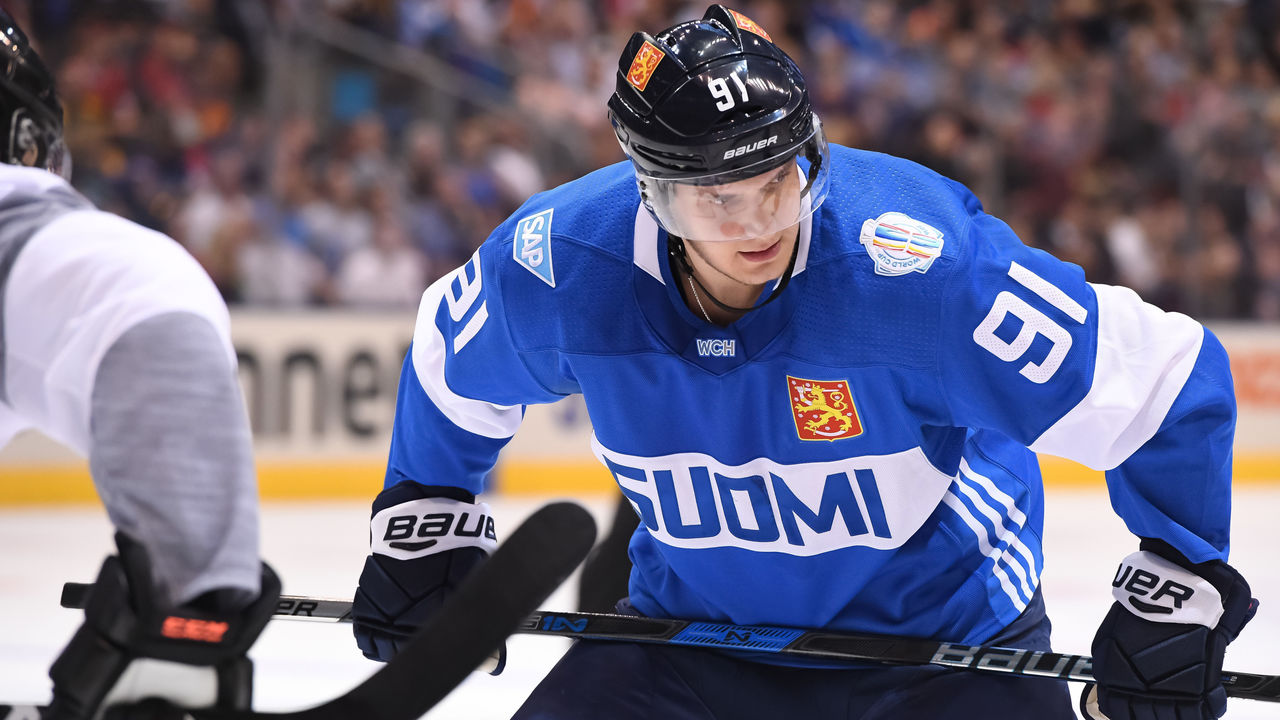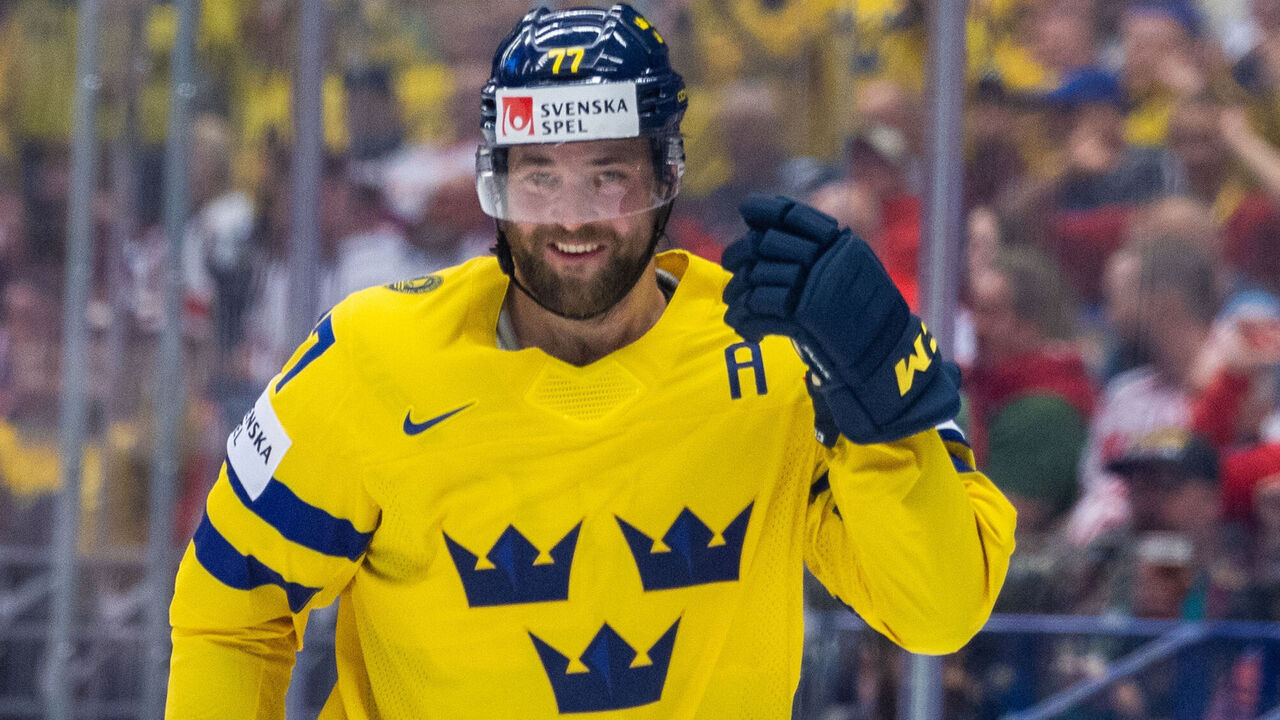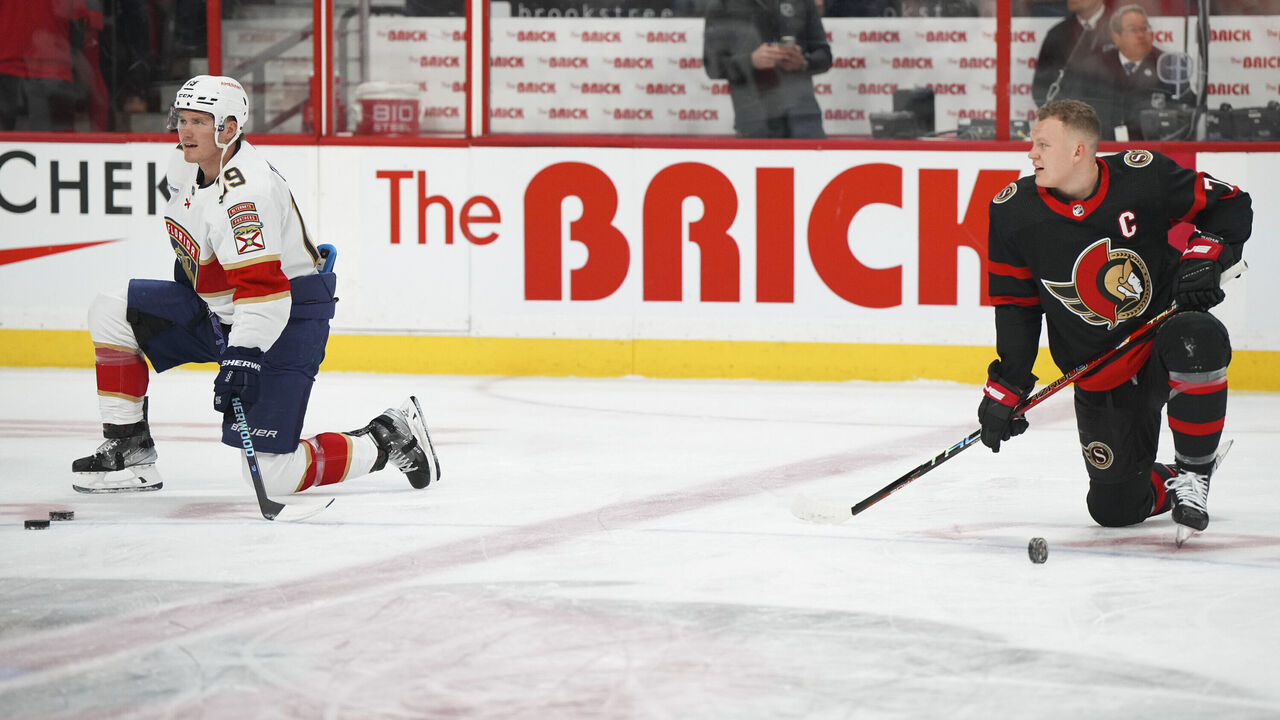Why each team will, won't win the 4 Nations Face-Off
The 4 Nations Face-Off is upon us, and while the format and legitimacy of the event has drawn some criticism, a quartet of some of the best hockey nations in the world providing the sport's first taste of best-on-best in eight years should be highly entertaining.
All four rosters are spoiled with talent, and here are the reasons why each country has a chance to conquer or crash out of the eight-day tournament.
Canada 🇨🇦

They can win it all if: Their big guns lead the way. Canada's top-end talent is unmatched in this tournament. At least one of Connor McDavid, Sidney Crosby (ideally a mostly healthy version), Nathan MacKinnon, or Cale Makar will be on the ice for the majority of the event, which is Canada's biggest advantage. If those players - perhaps the four best at the entire showcase - meet expectations, Canada is going to be tough to beat. If the secondary stars can execute a solid 200-foot game plan in support, even better.
It won't work out if: Goaltending is as big of a problem as perceived. The days of Canada having a Martin Brodeur, Roberto Luongo, or Carey Price as the last line of defense are long gone. Goaltending has been Canada's biggest question mark since the tournament was created, and management raised eyebrows with its choices between the pipes. The optics of goaltending potentially costing Canada the tournament - particularly while Vezina Trophy candidate Logan Thompson sits at home - would be terrible for Canada's brass.
X-factor: Makar. Canada has plenty of options here, but Makar is likely to log more ice time than any player on the team. He's the top option to run point on the power play and is the No. 1 puck mover on Canada's back end at even strength. A lot of stars will have to share the puck, but the play will often begin on Makar's stick.
Burning question: Who starts in goal for Canada? Adin Hill, Jordan Binnington, or Samuel Montembeault? Take your pick. None has been particularly great this season, and each faces tremendous pressure to perform in an event with minimal time to make up for mistakes.
Bottom line: Canada not winning any international hockey event it participates in is considered a failure, but the stakes feel greater this time around as it enters the 4 Nations Face-Off in the unfamiliar position of not being the overwhelming favorite. Canada barely broke a sweat in its most recent best-on-best events, and not delivering a championship after nearly a decade of waiting for the Crosby-McDavid partnership would be a bitter pill to swallow.
Finland 🇫🇮

They can win it all if: They stick to their identity. Finland always seems to be a difficult out at international events, and the Finns are unquestionably well-rounded enough to be a pesky matchup. A commitment to team defense is Finland's best bet because it doesn't have the offensive firepower to match up with the rest of the squads, and it has question marks on the blue line.
It might not work out if: A lack of defensive depth rears its head. Injuries to Miro Heiskanen, Rasmus Ristolainen, and Jani Hakanpaa were devastating blows for Finland in the lead-up to the tournament. Only 11 Finnish defensemen have suited up in the NHL this season, and Esa Lindell is the new de facto No. 1 rearguard up against some of the world's brightest stars.
X-factor: Patrik Laine. Finland has a handful of great forwards - Aleksander Barkov, Sebastian Aho, and Mikko Rantanen among them - but lacks true gamebreakers who stand out on the other rosters. Laine has the ability to change the complexion of a game with a single shot, and his power-play prowess could be vital in helping Finland steal a game or two.
Burning question: Can they overcome the absence of Heiskanen? His loss for Finland can't be overstated. Heiskanen is in the Norris Trophy conversation every season and feasibly could have logged around 30 minutes per game this tournament.
Bottom line: Finland is in tough to keep up with the tourney favorites, but it was included for a reason. The event's format is small enough for every team to have a chance.
Sweden 🇸🇪

They can win it all if: They simply play to their potential. No one looking at Sweden's roster would think it's devoid of talent, and some legitimate stars are in the mix with William Nylander, Jesper Bratt, Lucas Raymond, and Adrian Kempe spearheading the attack. Tre Kronor also boasts a deep, experienced blue line to boost its chances. A top four of Victor Hedman, Rasmus Dahlin, Gustav Forsling, and Mattias Ekholm stacks up nicely with the competition.
It might not work out if: Their centers get overwhelmed. An easily identifiable flaw in Sweden's lineup comes at the most important skater position, and that could create a significant mismatch against three other teams that have a collection of thoroughbreds down the middle of the ice. Sweden's top centers are Elias Pettersson, Mika Zibanejad, Elias Lindholm, and Joel Eriksson Ek - who are struggling to produce this season. That would be a nice group on an NHL roster but might not cut it at a best-on-best event.
X-factor: Pettersson. Perhaps some patriotism is what he needs to kick-start his season. Similar to his situation with the Vancouver Canucks after the J.T. Miller trade, Sweden will lean on Pettersson to carry a significant load. He's his country's most talented center, and he can spark his team if the inspired version of Petey who's capable of 100-point seasons shows up.
Burning question: Can they separate themselves? The Swedes are deep and talented but a step or two behind Canada and USA on paper. Jelling early is imperative as Sweden opens the tournament against Canada in Montreal before a clash with archrival Finland.
Bottom line: Sweden looks good, but maybe not great like some of its peers. It would be a mild surprise if the Swedes come away as champions.
United States 🇺🇸

They can win it all if: Their depth at each position shines. The United States is the favorite to win the event, and it's easy to see why. USA enters the tournament with a remarkable blend of speed, goal scorers, playmakers, and mobility on the blue line - all in front of the best goalie in the world. An overreliance on grit and veteran leadership sunk the U.S. team at the World Cup of Hockey in 2016, but the program appears to have moved on from that style as it seeks to embark on an era of international dominance built with an emphasis on the modern game.
It might not work out if: Hockey does what hockey does. This answer is a bit of a cop-out, but the U.S. roster has no discernible flaws. Nitpicking about how it's been a while since Mike Sullivan coached a big game, or how Chris Kreider was chosen over Tage Thompson aren't significant enough issues to take away from USA's big picture. Hockey is tremendously unpredictable, and one loss in such a crammed schedule can derail any team's tournament, but only fearing a fluke has to be comforting for the Stars and Stripes.
X-factor: Jack Eichel. Auston Matthews is the captain and No. 1 center, but Eichel is having a better season. The Vegas Golden Knights star is on pace for the best offensive campaign of his career and is one of several U.S. players in their primes yearning to represent their country for the first time. Watch for him to have a big impact on the tournament.
Burning question: Is this the start of a golden era for USA Hockey? The Americans have become a force to be reckoned with at the developmental level, and all the stars they've shuffled through the world juniors over the past decade are at or entering their professional peaks. Matthews, Eichel, the Tkachuk brothers, the Hughes brothers, Charlie McAvoy, Brock Faber, and more are going to be foundational pieces for the United States for the next handful of international events, opening the door for a potentially unprecedented run of success.
Bottom line: The pressure is on, but this tournament could be the start of something special for U.S. hockey.
HEADLINES
- Bobrovsky 10th in all-time wins with victory over Maple Leafs
- Batherson helps Senators double up Bruins for 5th straight win
- Marner trade talk exposes urgency of upcoming playoffs
- Flames' Zary suspended 2 games for elbowing Canucks' Elias Pettersson
- Maple Leafs' Domi: Winning Atlantic Division 'doesn't matter to us'